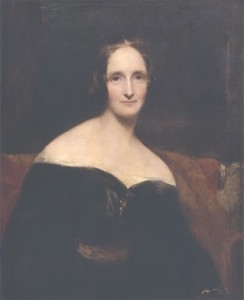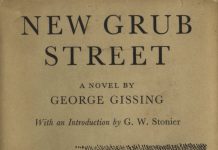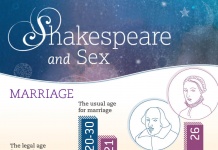 Should writers marry other writers, as Mary Wollstonecraft Shelley and her poet husband did? We know about “real-life literary power couples.” Me, I’m different. I don’t want to be a “power” (with a few worthy exceptions, such as seeing if I can’t make Amazon care more about the elderly, K-12 kids and others with vision impairments). I just want to get on with my work.
Should writers marry other writers, as Mary Wollstonecraft Shelley and her poet husband did? We know about “real-life literary power couples.” Me, I’m different. I don’t want to be a “power” (with a few worthy exceptions, such as seeing if I can’t make Amazon care more about the elderly, K-12 kids and others with vision impairments). I just want to get on with my work.
I don’t need my wife to bolster my writerly identity. No, I value Carly for her general intelligence and her ability to be compatible with me, in mood and in many other ways (she, too, loves gadgets and reads almost exclusively in E). We’ve been married close to a quarter of a century, but sometimes in the presence of strangers, we’ll hold hands and gaze into each other’s eyes and say: “Forgive us, we’ve only been married two days.” In my novel I knocked myself out to get my characters yelling at each other. Same in a spec screenplay I’m working on. In real life, Carly and I prefer to discuss and analyze. We save our wrath for a stuffed dog, an ever-handy target in place of each other. Similarly, TeleRead’s Joanna Cabot has told how happy she is with her Beloved, who isn’t really into reading novels, much less writing them.
We’ve got company in our belief that writers needn’t marry other writers. Consider George Gissing’s New Grub Street, the ultimate novel about the writerly life. Edwin Reardon, the art-for-art’s-sake novelist, dies in poverty. His problem, as explained by Jasper Milvain, the self-promotional literary critic who would fare so well as an entrepreneur today? Reardon married a not-so-frugal literary lady. Jasper says Reardon would have been better off with “a decent little dressmaker” so he could focus more on his art and worry less about the material. In a similar vein, I’m reminded of Joanna’s post about female novelists living off rich husbands.
I can anticipate the response. This is the era of equality. Men don’t have to worry as much as before about supporting women. I acknowledge that. In fact, I’m just saying what was right for Joanna and me, not saying that everyone should do the same. I haven’t researched how happy Mary Shelley, the author of Frankenstein, was with her poet husband, Percy Bysshe Shelley. But they stuck together through more than a few obstacles until her young husband drowned. Not every writerly match is as ill-fated as the one between Sylvia Plath and Ted Hughes, whom feminists blame for his wife’s suicide (I won’t pass judgment here). If nothing else, a literary spouse may excel as a reader of first drafts and as a picker of the right parties to go to.
So what’s your take on this issue? Should writers marry other writers? Are you an author? Have you yourself married another? Or set out not to marry a writer and maybe not even date one? Or been married and divorced from a writer? Along the way, keep in mind that not all writers have the same temperament, and that the kind of writing might count. Typically—exceptions abound—nonfiction writers might lack the passions of playwrights and poets. But who says the rules and stereotypes need always apply? Now, let’s hear from you, and meanwhile, happy V Day!
Imagine credit: Here.

































